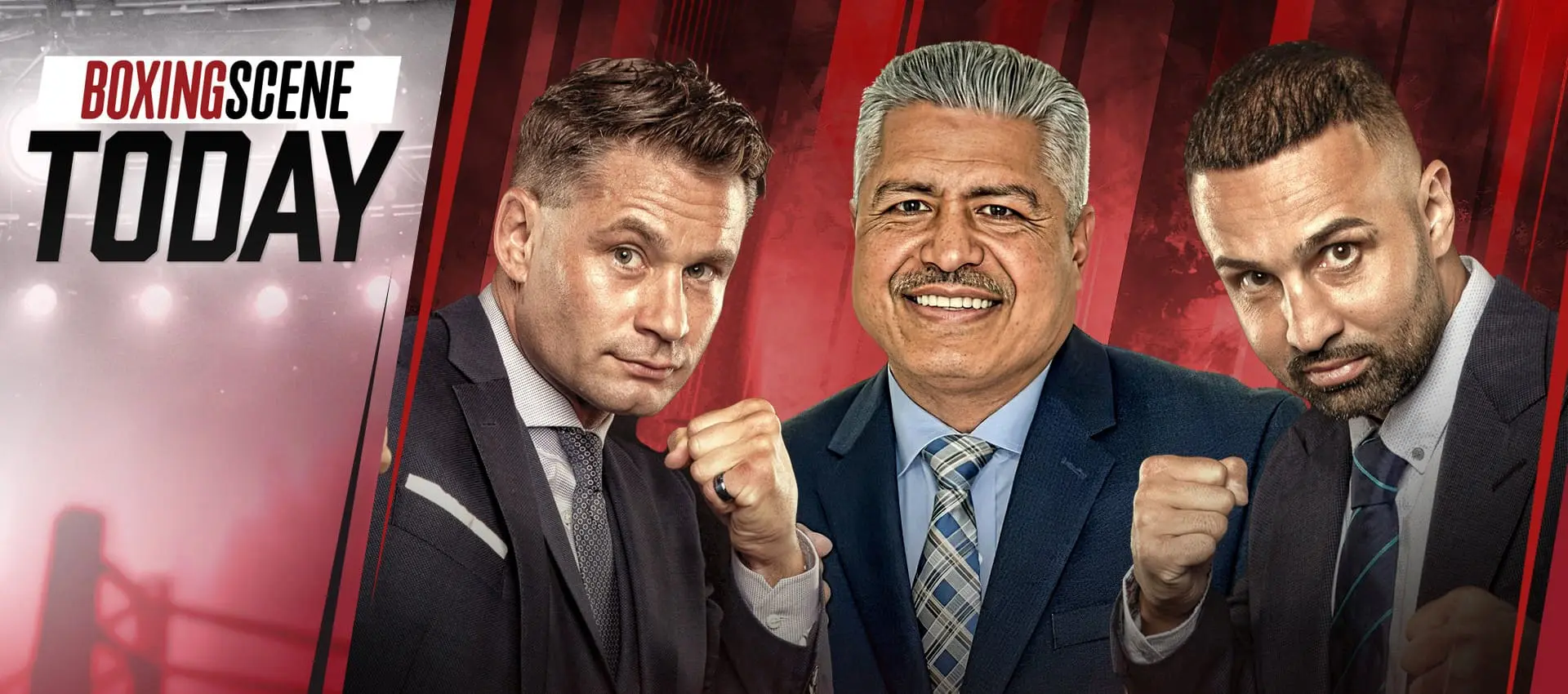
Saturday | Jan 24, 2026 | 8:00 PM EST
Raymond Muratalla vs Andy Cruz
Khalil Coe vs Jesse Hart
Omari Jones vs Jerome Baxter
Israil Madrimov vs Luis Salazar
DAZNLas Vegas, Nevada

Friday | Jan 30, 2026 | 6:00 PM EST
Bryan Flores vs Starling Castillo
Sulaiman Segawa vs Rene Palacios
ProBox TVHanover, Maryland

Saturday | Feb 21, 2026 | 7:00 PM EST
Mario Barrios vs Ryan Garcia
DAZNLas Vegas, Nevada
'BoxingScene Today'Talk Show
Pauli, Algieri, and Coach Garcia breakdown today's top stories

Upcoming episode - coming soon
Boxing Interviews
Interviews with boxing biggest stars










